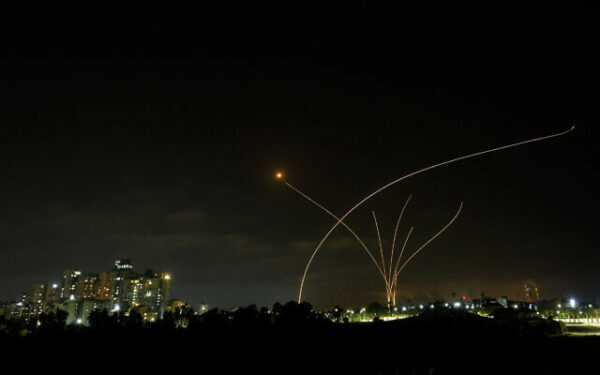
The UN fears a “full-scale war” after the deadly exchange of fire between Palestinian militants in the Gaza Strip and the Israeli military has escalated significantly.
More than 1,000 rockets have now been fired by Palestinian militants over 38 hours, Israel said, most at Tel Aviv.
Israel has carried out deadly air strikes, bringing down two tower blocks in Gaza on May 11.
Israeli Arabs have also staged violent protests in a number of Israeli towns.
The city of Lod, near Tel Aviv, has been put under a state of emergency.
UN Secretary-General António Guterres said he was “gravely concerned” by the ongoing violence.
Six Israelis have died and in Gaza at least 43 Palestinians, including 13 children, have been killed since May 10, the health ministry said.
The latest fatality was an Israeli citizen, who was killed when an anti-tank guided missile, fired from the northern Gaza Strip, struck a jeep on the border. Two other people were injured.
The fighting follows weeks of rising tension stoked by violent confrontations between Israeli police and Palestinian protesters at a site in Jerusalem that is holy to both Muslims and Jews.
Israel’s military says this is the biggest exchange since 2014.
Of the 1,050 rockets and mortar shells that have now been fired from Gaza, 850 had landed in Israel or were intercepted by its Iron Dome air defense system, and 200 failed to clear the border and landed back in Gaza, the Israeli army said.
Video footage from the city showed rockets streaking through the night sky, some exploding as they were hit by Israeli interceptor missiles.
Loud booms and air-raid sirens were heard across targeted cities, which included Tel Aviv, Ashkelon, Modiin, and the southern city of Beersheba, as Palestinian militants tried to overwhelm missile defenses.
The rocket fire escalated after the two residential tower blocks were brought down in Gaza. Israel said it was targeting rocket launch sites, high-rise buildings, homes and offices used by Hamas, the militant group that rules Gaza.
Mike Pompeo Visits Israeli Settlement in West Bank and Golan
Israeli Settlements: UN Condemns Plans to Build 2,500 More Homes in West Bank
Israeli Settlements: PM Benjamin Netanyahu Condemns as Biased John Kerry’s Speech
Hamas said it was incensed by the “the enemy’s targeting of residential towers”.
Residents had been warned to evacuate the buildings before the fighter jets attacked, however health officials said there were still civilians deaths.
US state department spokesman, Ned Price said Israel had the right to defend itself but the Palestinian people also had the right to safety and security.
Israeli Defense Minister Benny Gantz said the Israeli strikes were “just the beginning”.
“Terror organizations have been hit hard and will continue to be hit because of their decision to hit Israel,” he said.
“We’ll return peace and quiet, for the long term.”
Hamas leader Ismail Haniyeh said in a televised address: “If [Israel] wants to escalate, we are ready for it, and if it wants to stop, we’re also ready.”
Protests by Israeli Arabs in Lod escalated to full-scale rioting, with protesters throwing rocks at police, who responded with stun grenades.
A 52-year-old father and his 16-year-old daughter reportedly died when a rocket hit their car, with a number of other people injured in clashes, Israeli newspaper Haaretz.
The violence caused Israeli PM Benjamin Netanyahu to declared a state of emergency in Lod on May 11. It was the first time the government had used emergency powers over an Arab community since 1966, The Times of Israel said.
PM Netanyahu, who went to the city to call for calm, said he would impose a curfew if necessary.
Israeli media reported that synagogues and several businesses had been set on fire, while Reuters said there were reports a car driven by an Arab resident had been stoned.
Ben Gurion Airport, Israel’s main international hub and one of the country’s busiest, briefly halted flights on May 11 and an energy pipeline between the cities of Eilat and Ashkelon was hit.
There has also been unrest in other cities with a large Israeli Arab population, as well as in East Jerusalem and the West Bank.
